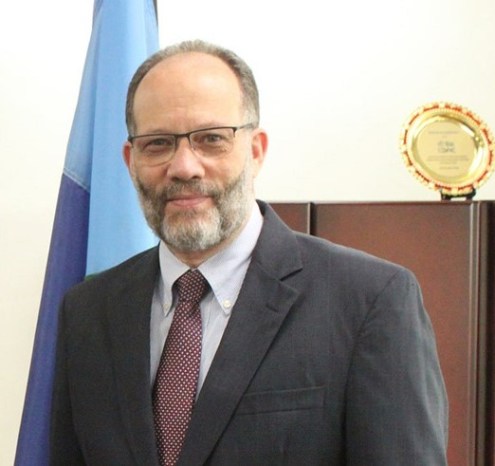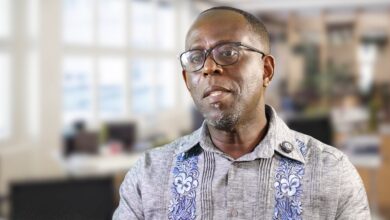He also posited that small vulnerable countries must never be denied access to concessional financing in their quest for resilience against climate change.
These were among the issues he addressed recently, while speaking at the inauguration ceremony for the second term in office of Dr. Carissa Etienne, Director of the Pan American Organisation (PAHO). The ceremony was held 1 February at PAHO Headquarters in Washington D.C.
With Small Island Developing States (SIDS) on the front line, he said: “The WHO has recognised that climate change is one of the greatest threats to human health and the environment, as it affects the social and environmental determinants of health – clean air, safe drinking water, sufficient food and secure shelter.”
The CARICOM Secretary-General seized the opportunity to advocate for the removal of GDP per capita as the primary criterion for access to concessional development finance. He emphasised the need for International Financial Institutions (IFIs) to consider the extreme vulnerability of SIDS to natural disasters and external shocks.
He said the WHO asserts that between 2030 and 2050, climate change is expected to cause approximately 250,000 additional deaths per year, from malnutrition, malaria, diarrhoea and heat stress. This does not take into account the loss of life from the mega storms. The direct damage costs to health is estimated to be between US$2-4 billion per year by 2030.
Citing a recent decision by the Board of the Green Climate Fund to deny funding to a Pacific Islands nation because of its per capita income, Mr. LaRocque described that development as “unacceptable.”
He told the international audience that since the 2015 Paris Agreement, Caribbean scientists have carried out climate modelling to determine the consequences on the Region of a warmer world at both 1.5 and 2.0 degrees. They have concluded that with the current trend, a 1.5 degrees warmer climate will occur within the next decade, much sooner than previously anticipated and with devastating consequences.
The Secretary-General pointed out that the September 2017 hurricanes occurred with global temperatures approximately one degree Centigrade [1˚C] above pre-industrial levels.
“For us as Small Island and Low-Lying Coastal Developing States (SIDS), which are highly vulnerable to climatic hazards, global warming beyond 1.5 is an existential threat,” he said.
“Now more than ever there is an urgent need to change the criteria for concessional development financing. The inherent vulnerability of SIDS demands that the criteria be changed by multilateral financing institutions,” he added.
The CARICOM Secretary-General reminded that participants at the Second Global Conference on Health and Climate to support the implementation of the Paris Climate Agreement, had also called for “scaling-up financial investments in climate change and health, and developing a new approach to link health, economics and climate change.”
But despite the recognition of those strong links, he said the WHO reports that less than 1.5% of international finance for climate change adaptation is currently allocated to health projects.
“It is crucial to increase the level of investment of climate finance for health,” he stated, commending Dr. Tedros Ghebreyesus, WHO Director-General, for identifying health impacts of climate and environmental change as one of the four priorities of the Special Initiative on Climate Change and Health.






